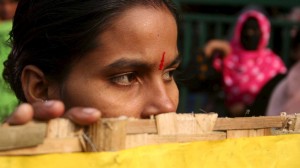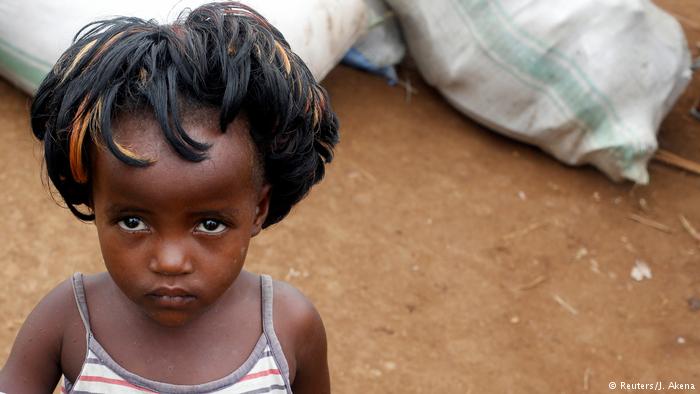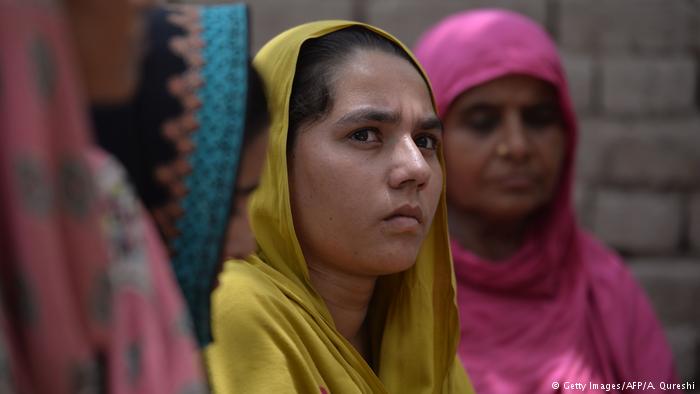The victim’s desperation
 Watching news channels has always been depressing for me, but on March 13, my heart sank when I heard about a teenage girl from a small town in Pakistan’s Punjab who decided to set herself on fire outside a local police station.She suffered severe burns on her body and succumbed to her wounds the next day, all because culprits who allegedly gang raped her were granted bail by the police.
Watching news channels has always been depressing for me, but on March 13, my heart sank when I heard about a teenage girl from a small town in Pakistan’s Punjab who decided to set herself on fire outside a local police station.She suffered severe burns on her body and succumbed to her wounds the next day, all because culprits who allegedly gang raped her were granted bail by the police.
According to her brother, Amina was raped by five men as she walked home from her college on January 5. This incident occurred in Muzaffargarh, the same district where the horrific 2002 gang rape of Mukhtar Mai made headlines around the world.
This is not the only incident and Amina bibi is not the only victim let down by the justice system. The effects of rape on a victim are both physical and psychological and can lead to lifelong trauma. The only thing that could console a victim a little, is justice. But in Amina bibi case, she was denied justice by the very same people who were her only hope.
Rape cases alarmingly on rise
Reports suggest that rape cases are on the rise in Pakistan. In October 2013, a report submitted by the National Crisis Management Cell, a subsidiary institution of Pakistan’s interior ministry revealed that the police had registered 10,703 cases of rape across the country since 2008. Anyone who is familiar with the concept of “honour” in Pakistan knows that these are just a fraction of the actual number of incidents.
Many womenand their families refuse to register cases of rape in order to keep the honour of their family intact. If a woman is raped and reports the incident, she is considered shameless, unworthy and her parents or society shuns her. It is unfortunate that the victims have to bear the brunt of this heinous crime. If they somehow find the courage to report the crime, they are treated badly by the local police who, more often than not, favour powerful culprits who can offer big bribes.
“Women responsible for crimes against them”
Watching news channels has always been depressing for me but on 13th of March, my heart sank when I saw news of a teenage girl from a small town of Punjab who self immolate. She set herself on fire outside a local police station. With 70% of her body burnt, she died the next day. All because culprits who allegedly gang raped her were granted bail by the police.
According to her brother, Amina was raped by five men as she walked home from her college on January 5. This incident occurred in the same Muzaffargarh district where the horrific 2002 gang rape of Mukhtar Mai, made headlines around the world.
This is not the only incident and Amina bibi is not the only victim let down by the justice system. The effects of rape on a victim are both physical and psychological and can lead to lifelong trauma. The only thing that could console a victim just a little is justice. But in Amina bibi case, she was denied justice by the very same people who were her only hope.
Rape cases alarmingly on rise
Reports suggest that rape cases are on the rise in Pakistan. In Oct 2013, a report submitted by the National Crisis Management Cell, a subsidiary institution of the interior ministry, revealed that since 2008, police had registered 10,703 cases of rape across the country. Anyone who is familiar with the concept of ‘honour’ in Pakistan knows that these are just a fraction of the actual number.
Many of them are usually not reported, and the reason is simple; if a woman is raped and she reports the incident, she is considered shameless, unworthy and her parents or society shuns her. It is so unfortunate that victims are the one who have to bear the brunt of this heinous crime as our society usually held her responsible for what happened to her. If the victims somehow find the courage to report the crime, they are shunned by the local police, most of the times; they favour the powerful culprits who can offer big bribes. The victims are let down not only by police but also by their community which instead of consoling the victim, rejects her for bringing the dishonour to their family.
“Women responsible for crimes against them”
The general mindset of our people could be easily understood by a quote I found on the social media by a professor of Islamic Law in Saudi Arabia, “If a woman gets raped while walking alone in public, then she is at fault. She is only seducing men by her presence! She should have stayed home like Muslim women.”
Maybe this statement is wrongly attributed to that scholar, but what is mentioned, is the mindset of many in our society. This is one of the reasons that most rape cases are not registered. Some women stay silent to avoid the stigma and rejection while others choose to end their lives like Amina Bibi. Although NGOs and the media are encouraging women to raise their voices if they are victimized, there is no change in the situation. No one pays heed to such victims unless their cases are exploited by media for publicity or until the courts take action. The same happened in Amina’s case too. The Supreme Court of Pakistan has ordered a reopening of her case.
No proper implementation
Although there are laws against sexual assaults, the absence of proper implementation has so far failed to bring about an effective system of deterrence. In December last year, a member of Senate asked about the number of rape cases registered in Islamabad during the last five years and the number of culprits who were punished. The answer stunned the senators: 103 rape cases were registered only in Islamabad, the capital of Pakistan, during the last five years, but not a single accused was convicted. Later, all the opposition senators staged a token walkout to register their protest over the failure of the police in completing investigations in the rape cases. Maybe instead of just staging a walk out, they should have pressurized the police system and Amina Bibi would have still been alive.
For any improvement in this sorry state of affairs, social attitudes towards women need to change. We need to understand that there will never be justice until there are major changes to the country’s attitude towards women. The fact thus remains that it is the society as much as the state that should be held responsible for Amina’s tragedy.
Author: Unbreen Fatima
Editor: Manasi Gopalakrishnan






